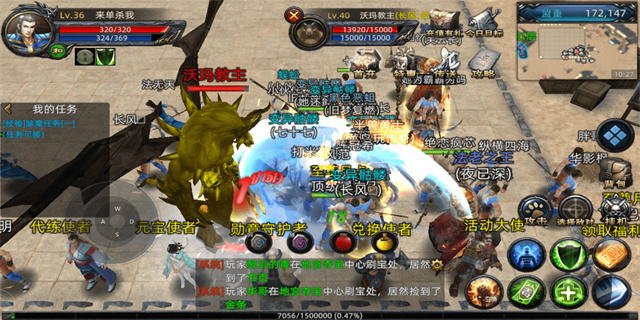Translate - An Essential Tool for Global Communication
Introduction
In today's interconnected world, translation has become an indispensable tool for effective global communication. With the increasing interconnectedness of economies, cultures, and people, the need for accurate and efficient translation services has skyrocketed. This article will explore what translation really means, the challenges faced by translators, and the importance of translation in bridging language barriers.

The Meaning of Translation
Translation, in its simplest form, refers to the process of converting a written or spoken language into another language while retaining its original meaning. It goes beyond literal word-for-word substitution and involves capturing the essence, intent, and cultural nuances of the original text or speech. A skilled translator is not merely a linguist but also a cultural ambassador, transferring ideas and emotions from one language to another.

Translators make use of their language proficiency, cultural knowledge, and expertise in specific subject matters to render accurate and culturally appropriate translations. They must possess excellent communication skills, a deep understanding of the source and target languages, as well as the ability to adapt and convey the original message effectively.
The Challenges Faced by Translators
Translation is a complex and demanding task that presents numerous challenges. One of the greatest challenges is the inherent complexity and richness of languages. Languages are not mere systems of words and grammatical rules; they embody unique cultural and social contexts. Translators must be aware of these nuances and ensure that their translations are not only linguistically accurate but also culturally sensitive.
Another major challenge is the constant evolution of languages. New words, idioms, and expressions emerge regularly, often in response to technological advancements, cultural shifts, or global events. Translators must stay up-to-date with these linguistic changes to ensure their translations remain relevant and current.
Time constraints and the need for quick turnaround pose additional challenges for translators. While accuracy and quality are of utmost importance, translators often work under tight deadlines, requiring them to be efficient without compromising on the accuracy and integrity of the translations. This can be particularly challenging when working on lengthy or complex texts.
The Significance of Translation
Translation plays a vital role in bridging language barriers and promoting global understanding. It allows individuals, businesses, and governments to communicate effectively across linguistic boundaries, fostering international cooperation, cultural exchange, and economic growth.
For businesses, translation is essential for entering international markets. It enables companies to effectively communicate their products and services to customers in different regions, thereby expanding their customer base and increasing revenue. Without translation, businesses would struggle to connect with their target audiences and capitalize on global opportunities.
Translation also facilitates cultural exchange and appreciation. It allows people from different backgrounds to access and understand literature, art, music, and ideas from other cultures, promoting mutual respect and dialogue. Moreover, translation plays a crucial role in preserving and promoting endangered languages by making their literature and traditions accessible to a wider audience.
On a broader scale, translation is crucial for diplomacy, politics, and international relations. Interpreters and translators are essential in facilitating communication between world leaders, diplomats, and representatives from different nations. Accurate translation can prevent misunderstandings, contribute to peaceful negotiations, and promote collaboration on global challenges.
Conclusion
Translation is much more than a linguistic exercise; it is a transformative process that connects people, cultures, and ideas. As our world becomes increasingly interconnected, the demand for skilled translators continues to rise. By breaking down language barriers, translation helps foster global understanding, facilitate economic growth, and promote cultural diversity. Its significance cannot be overstated, and it remains an essential tool for effective communication in our diverse and interconnected world.



















